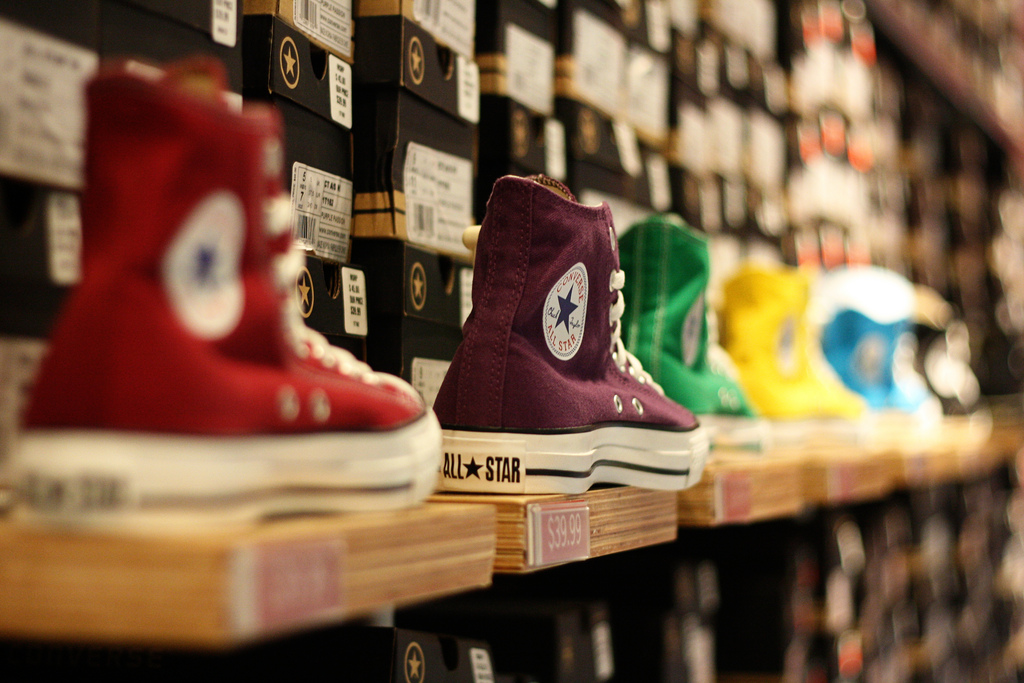After debuting in 1917 and transcending decades, the Chuck Taylor has become an iconic sneaker in American history, and Converse‘s signature shoe remains in style today. So naturally, that rare type of flawless formula is bound to attract imitators.
You’ve surely seen a shoe on the market that looks like the Chuck Taylor – rubber soles and toe, canvas midway, wide laces – just without the trademark Converse star. Available at stores like Wal-Mart, Skechers, Kmart, FILA and Bobs, these knock-off Chucks have seemingly become common practice. But Converse is fighting back.
The North Andover-based company has filed a lawsuit against 31 different companies that are “mass-producing, distributing or selling” imitation Chuck Taylors, which the company deems “iconic.”
An official release regarding the lawsuit states that the move is an effort to protect the Converse brand, and that as the popularity of the Chuck Taylor has increased, so have the number of knock-offs. Since 2008, the brand has issued 180 cease-and-desist letters to imitators for poaching the Converse Midsole Trademark, which is the overall style, and the Converse Outsole Trademark, which is the diamond-patterned rubber exterior, according to the announcement.
While the release states that the trademark infringement causes both confusion amongst consumers and monetary harm to the company, Converse CEO Jim Calhoun told the New York Times that its main goal is to simply get the imitators off of the shelves.
Calhoun said to the Times: “The goal really is to stop this action. I think we’re quite fortunate here to be in the possession of what we would consider to be an American icon.”
In the official press release, Calhoun elaborated on that idea, and how the knock-offs surpass the bar of mere competition:
Our decision to bring these lawsuits is grounded in the basic principle of fairness, our well-established right and responsibility to protect Converse’s intellectual property, and our commitment to prevent consumer confusion in the marketplace. For generations, the Chuck Taylor, universally known as the ‘Chuck’, has captured the hearts and minds of millions of consumers, selling over a billion pairs globally during the past century. We welcome fair competition, but we do not believe companies have a right to copy the Chuck’s trademarked look.
As the Times points out, winning lawsuits regarding trademark infringement in the fashion world is no easy task. Trademarks don’t protect aspects of an item that are considered “functional,” and the prosecutor also must prove that consumers associate a certain style with a direct brand, on top of the style being significantly popular.
In the case of the Chuck Taylor, though, it might be possible to prove that the immediate association leads back to one brand: Converse.
Image via Ginny/Flickr

